THE DIVERSITY OF AUTISM: FROM DATA TO WELLBEING (INSAR 2024 Community Conference)
Event description
The diversity of autism research worldwide reflects the diversity of the autism spectrum. This is a rare opportunity to hear the same international Keynote Speakers presenting on their research at the Annual Meeting of the International Society for Autism Research (INSAR).
This event caters for those interested in autism research, including: clinicians, educators and all professionals who work with Autistic people and their families, and Autistic people themselves including family members and supporters.
The program will also include a panel discussion facilitated by Professor Sandra Thom-Jones. In addition, there will be up to 10 Exhibitor Tables from autism related organisations available throughout the afternoon.
Light refreshments will be served during afternoon tea.
Online streaming is also available.
Program – Wednesday 15 May 2024
12.30pm: Doors open. Access to exhibitor stands and tea/coffee available. |
1.00pm: Welcome & Acknowledgement of Country, Professor Cheryl Dissanayake, AM (Conference Convenor) and Professor Petrus de Vries (INSAR President) |
1.25pm: Dr Wenn B. Lawson (Australia): The autistic experience of being monotropic, strengths and challenges to well-being. |
2.00pm: A/Professor Adriana Di Martino (USA): When Autism meets ADHD: what can neuroimaging tell us about their co-occurrence? |
2.35pm: AFTERNOON TEA |
3.10pm: Professor Matthew Siegal (USA): Complex Presentations of Autism. |
3.45pm: Professor Susan Shur-Fen Gau (Taiwan): Mapping Autism Research in Taiwan: From Clinical, Cognitive, and Neuroimaging Studies to the Gut-Brain Axis. |
4.20pm: Panel Discussion and Q&A facilitated by Professor Sandra Thom-Jones. |
4.50pm: Closing remarks. |
SPEAKERS:
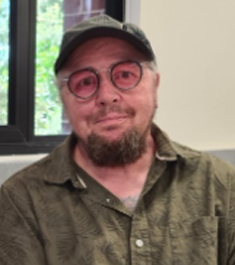 Wenn’s talk offers an overview of the experiences and challenges faced by autistics, via the lens of monotropism, the autistic cognitive style. As autistic people, monotropism (singe focused attention) and some of its flow on states (e.g. forward thinking, noticing when we are hungry unwell) impact our processing and sensory systems affecting our daily lives. In turn this can lead to some positive strengths but also to negative experiences with mental health and well-being. This talk suggests ways that as autistic people, we can gain understanding of why we do what we do so we can self-advocate for ourselves, but it also offers a roadmap to help others understand us better too. Dr. Wenn is passionate about autism, mental health, all things LGBTQIA+ and building autism understanding across the generations, professions and the world. He is a well know author, speaker and poet. Wenn is an Adjunct Associate Professor with Curtin University, WA, and member of CARG (Curtin University’s Autism Research Group). He has published as a Senior Researcher with Macquarie University, Sydney, NSW, Curtin University WA and The University of Queensland, Australia. Wenn’s focus has been to highlight the need for co-production in a variety of neurodivergent research, to contribute to the call of the autistic voice: ‘it must be nothing about me without me’ and to highlight the needs of those who are late in coming to a recognition of their autism as well as the reality that adaptive morphing (masking) has had on mental health. Wenn is a key theorist of the Monotropism theory of Autism. Wenn resides on a number of boards, including the Editorial Board for ‘Autism in Adulthood’, the Autism Research Institute (ARI) (US), and The American Autism Association. As well as being a well-known author, Wenn is a family man with a love for birds. |
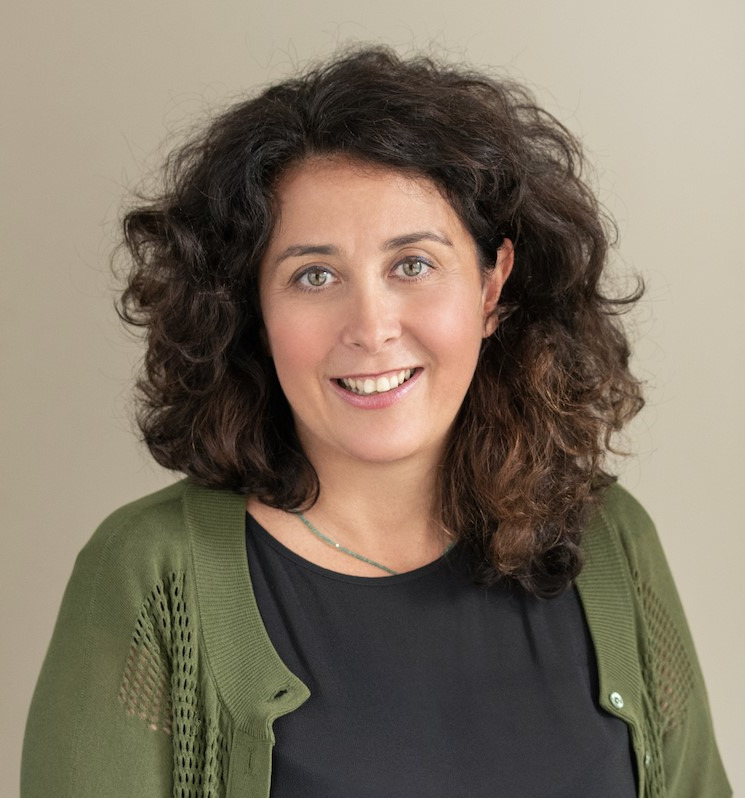 Adriana Di Martino, MD - When Autism meets ADHD: what can neuroimaging tell us about their co-occurrence? Adriana Di Martino, MD, is the founding and research director of the Autism Center at the Child Mind Institute in New York City, USA, where she also serves as a tenured senior research scientist and the Dr. John and Consuela Phelan Scholar. Dr. Di Martino completed her medical degree and residency training in child psychiatry and pediatric neurology at the University of Cagliari, Italy. She pursued research specialization through a postdoctoral fellowship at the NYU Langone Medical Center, NYC, USA, and continued as a member of their faculty before joining the Child Mind Institute. She has a long-standing research interest in the neurobiological underpinnings of autism and other neurodevelopmental conditions through brain imaging and a range of other clinical and cognitive approaches. Her studies place a particular emphasis on understanding large scale brain networks and have empirically addressed key methodological and conceptual research challenges in the field. To accelerate the pace of discovery, Dr. Di Martino co-founded and directed the Autism Brain Imaging Data Exchange (ABIDE) which aggregates and shares over 2000 functional and structural brain imaging data from laboratories around the world. She has been also a leader in efforts to gain a deeper understanding of autism heterogeneity by examining dimensional inter-individual differences in brain-behavior relationships, exploring novel approaches to subtyping, as well as recognizing and understanding overlaps in the neural bases of mental health conditions seemingly co-occurring with autism. Dr. Di Martino has received honors and funding support from the National Institute of Health, the Brain Behavior Research Foundation (formerly NARSAD), the Leon Levy Foundation, the Simons Foundation, and the Eagles Autism Foundation. In addition to her investigative endeavors, Dr. Di Martino is committed to serve the scientific community more broadly as mentor to early career colleagues and grant reviewer for NIH and other research foundations’ review groups. She is the chair of the Child Psychopathology and Developmental Disorder (CPDD) NIH study section, and a member of the scientific advisory board for the Autism Science Foundation. More recently, Dr. Di Martino received the fourth “Autismo Senza Frontiere” (Autism Without Borders) award conferred by the Falanga Foundation, in collaboration with the IRCSS Stella Maris Institute of the University of Pisa, Italy. |
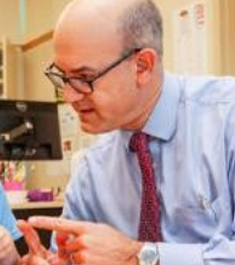 The definitions of autism have changed dramatically over the past four decades to include a wide range of people. The field continues to debate the utility and meaning of identifying portions of the spectrum as distinct groups. Autistic people with complex presentations have very high support needs, but have been receiving less research attention over time, despite having elevated rates of co-occurring mental health challenges and challenging behaviors. We will explore some of the ways the field has approached complex presentations in autism and highlight the benefits of focusing on this group. Directing attention to their daily living needs may lead to greater clarity in identification and improved services and supports. Matthew Siegel, MD is a Professor of Psychiatry and Pediatrics at Tufts University School of Medicine, a Senior Instructor at Harvard Medical School, Chief of Clinical Enterprise for Boston Childrens Hospital Department of Psychiatry and Behavioral Sciences, and Chief Behavior Health Officer for Franciscan Childrens Hospital. Dr. Siegel has built a nationally recognized continuum of care, teaching and research to address the behavioral health of youth with autism and other developmental disabilities in Maine. He founded and is the principal investigator of the Autism and Developmental Disorders Inpatient Research Collaborative (ADDIRC), and founded the first U.S. learning health network of hospital psychiatric units serving youth with developmental disabilities. His research and clinical work have focused on better understanding the phenotypic profiles and clinical needs of youth with complex needs, intense behavior and co-occurring psychiatric disorders. He has led the creation of the Autism Inpatient Collection, a data resource of over 1500 deeply phenotyped and genetically sequenced participants, heavily weighted to those with complex presentations , which is available to investigators worldwide through SFARIBase. Dr. Siegel is a federally appointed member of the National Institutes of Health Interagency Autism Coordinating Committee and a lead author of the practice guidelines of the American Academy of Child and Adolescent Psychiatry for assessment and treatment of youth with autism, and youth with intellectual disability. |
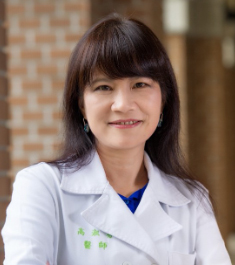 Susan Shur-Fen Gau, MD, Ph.D - Mapping Autism Research in Taiwan: From Clinical, Cognitive, and Neuroimaging Studies to the Gut-Brain Axis. Although genetic studies have provided some insights, they only explain a small part of our autistic population in Taiwan. We have done extensive work to facilitating adjustments in schools and communities and collected a wide range of information from autistic individuals, their siblings who do not have autism, and people without autism. This data includes health records, genetic data, brain scans, and gut bacteria and metabolic information. We have also been exploring markers that might help us identify autism earlier and more accurately based on brain imaging and genetic information. We have used advanced brain imaging to compare differences in brain structure, connections, and activities in autistic people, people with attention-deficit hyperactivity disorder (ADHD), and their siblings compared to people without autism and ADHD to help understand how autism develops and how it differs from other conditions. Our research suggests that the balance of gut bacteria and their metabolic products might differ in autistic people compared to their siblings and non-autistic individuals, possibly opening the door to exploring the role of probiotics in fostering better outcomes. Professor
Gau is Vice President of the National Taiwan University (NTU) Hospital
and a Distinguished Professor of Psychiatry, Psychology, Epidemiology,
Brain and Mind Sciences, Clinical Medicine, and Occupational Therapy at
NTU, Taiwan. Her research primarily focuses on the psychiatric, genetic,
and pharmacoepidemiology of attention-deficit hyperactivity disorder
(ADHD) and autism. She has co-developed and prepared several Chinese
versions of instruments for ADHD and autism, conducted several studies
on pharmacotherapy for ADHD, and been conducting follow-up, family,
neuropsychological, neuroimaging, neurophysiological, microbiome,
metabolomics, genetic, animal, and cellular (iPSC) studies on these
conditions. She has received many outstanding research, teaching, and
service including the prestigious 2020 Physician Model Award from the
Taiwan Medical Association (Taiwan MA), the 2021 COVID-19 Prevention
Human Rights Service Award, the 2022 COVID-19 Prevention Contribution
Award from Taipei MA, and the Special Contribution Award for COVID-19
Prevention from Taiwan MA. Furthermore, Professor Gau was honored with
the 2023 Human Rights Contribution Award and the 2024 Outstanding
Research Award from Taiwan’s National Council of Science and
Technology. |
The panel discussion will be facilitated by Professor Sandra Thom-Jones:
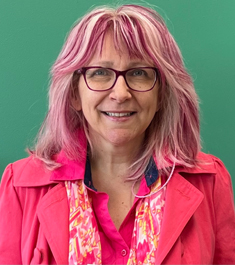 Professor Sandra Thom-Jones is an autistic author, artisan, academic and advocate. She is the author of Growing in to Autism (MUP, 2022), the mother of two adult autistic sons, and a passionate champion for the inclusion of autistic people in all aspects of society. Sandra now works as a Consultant providing a range of personalised services for autistic people and their communities through her website the Autistic Professor. Sandra has undertaken numerous research projects in partnership with the autistic community on the experiences of autistic people; including research that won the Autism CRC’s 2019 and 2021 awards for research translation and 2022 award for inclusive research. |
EXHIBITORS
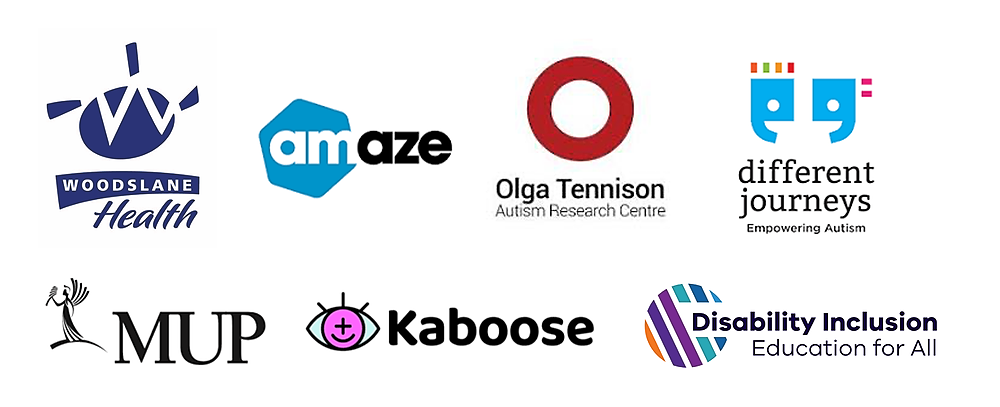
Tickets for good, not greed Humanitix dedicates 100% of profits from booking fees to charity
